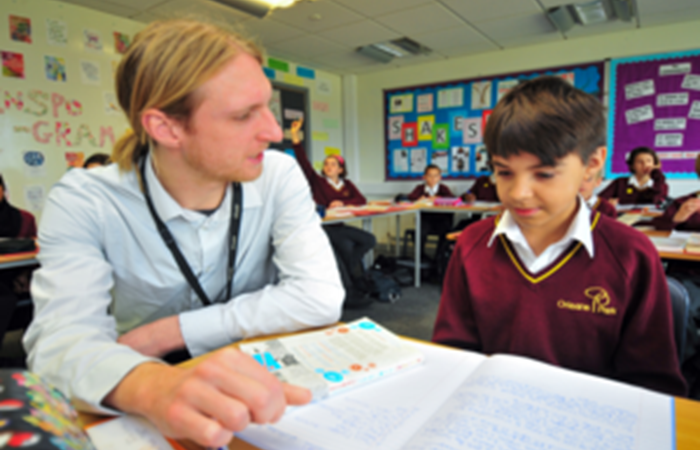Ofsted

Ofsted was commissioned by the Department of Education to look at the overall quality of tutoring provided, how it was integrated into schools curriculum planning and delivery, and the likelihood that it will help pupils catch up.
Read the Independent review of tutoring in schools and 16 to 19 providers report.
The reviews find that in secondary schools and 16-19 education providers there has been a shift in those who are receiving tuition, with much of the time being used for learners about to sit exams.
The review draws on evidence from 51 schools and 34 further education and skills providers.
The shift to focusing on exams comes despite many secondary school leaders acknowledging that pupils in key stage 3 needed the most support with catching up.
Ofsted Chief Inspector, Amanda Spielman, said:
Tutoring, when used in the right way, can have a positive effect on the learners using it. But tutoring is an expensive intervention and should be aimed at the right students, and not just for exam preparation.
Its important that the pupils who most need help to catch up on lost learning get that opportunity.
Schools
The report found that in schools, tutoring continued to be effective when it was well planned, delivered in small groups and aligned with the school curriculum. Schools where tutoring was strong also built on pupils prior knowledge.
In secondary schools, leaders tended to use qualified teachers, often offering tutoring opportunities as additional paid responsibilities to internal teaching staff. This meant some tutors already had strong relationships with pupils and were able to establish a clear link between the content of tutoring sessions and the school curriculum.
In primary schools tutoring was more likely to be delivered by teaching assistants. However, Ofsted found a clear difference between sessions with a qualified teacher and those with teaching assistants, who often lacked the subject knowledge to address pupils misconceptions quickly.
Ofsted found remote tutoring through tuition partner routes was the weakest form of tutoring. In some cases, poor communication between tutors and staff was a concern and schools had little involvement in the content of the tutoring sessions.
Generally, the views of leaders, tutors and pupils on the perceived impact of tutoring have remained positive. Most of the pupils we spoke to said that they enjoyed tutoring and found the extra support helpful.
16-19 providers
Tutoring in 16-19 providers was most effective when it aligned with the subject curriculum. The strongest providers assessed the gaps in learners knowledge and skills before and during tutoring. This meant they could adapt their teaching to ensure that learners developed their knowledge and skills securely and quickly.
There was a noticeable difference in the quality of sessions taught by qualified teachers and non-qualified teachers. Tutors from external agencies werent always given the training needed to deliver high-quality sessions and sometimes had limited communication with the provider to monitor and identify gaps.
Tutoring continued to be used for a variety of purposes in 16-19 providers. Where leaders chose to use it for exam preparations, most chose to select learners who were re-sitting maths or English GCSEs.
The view of leaders, tutors and learners was that the impact of tutoring remains positive. Learners found the tutoring environment to be supportive and praised the safety they had to make mistakes and learn without judgement.
Press office
8.30am to 6pm Monday to Friday 0300 013 0415
Related Articles
Comments
Write a Comment
Ministerial Departmental News
- PM's Office, 10 Downing Street
- Cabinet Office
- Department for Business, Innovation and Skills
- Department for Communities and Local Government
- Department for Culture, Media and Sport
- Department for Education
- Department for Environment, Food and Rural Affairs
- Department for International Development
- Department for Transport
- Department for Work and Pensions
- Department of Energy and Climate Change
- Department of Health
- Foreign and Commonwealth Office
- HM Treasury
- Home Office
- Ministry of Defence
- Ministry of Justice
- Northern Ireland Office
- Scotland Office
- Wales Office
- See all departments
